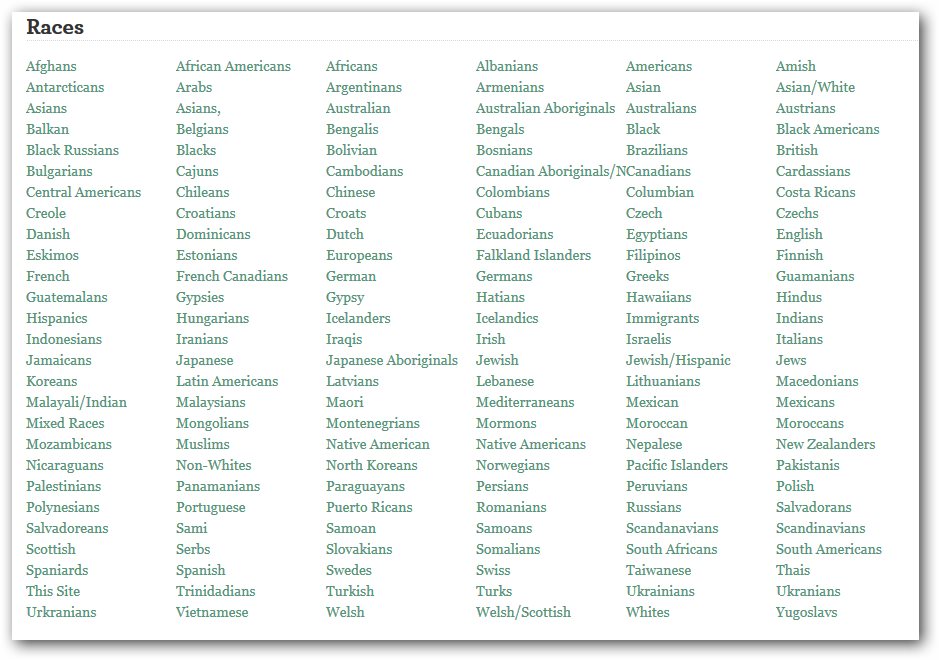In the vast and ever-evolving landscape of the English language, certain words carry a weight far beyond their literal definitions. They can be harmless, humorous, or, at their worst, deeply offensive. The term "kook" is one such word that has sparked confusion and concern, particularly when its meaning is debated in the context of racial slurs. Many people, like a Wattpad author who was told "kook" was a racial slur against Korean people, might be surprised to learn of its contested nature, especially when a quick Google search might only confirm "gook" as offensive, but not "kook." So, what exactly is a "kook," and can it truly be a racial slur?
This article aims to unravel the complexities surrounding the word "kook," delving into its various uses, its potential as a derogatory term, and the specific claims of it being a racial slur against different groups. By examining its origins and contemporary applications, we hope to provide a clearer understanding of this contentious term.
The Shadow of "Gook": A Predecessor in Prejudice
Before we dive into "kook," it's crucial to understand "gook," a term with an undeniably clear and painful history as a racial slur. Pronounced / ˈ ɡ uː k / or / ˈ ɡ ʊ k /, "gook" is a deeply derogatory term primarily used for people of East and Southeast Asian descent. Its exact origin remains somewhat unclear, though it is widely believed to have originated among U.S. military personnel, particularly during conflicts in Asia.
Historically, "gook" gained prominence as a pejorative during the Korean War, specifically targeting Korean people. Its use was widespread and served to dehumanize and degrade the local population. Some theories suggest its etymology might trace back to "gugo," the Tagalog name for a plant (Entada phaseoloides or St. Thomas bean) whose bark was used by Filipinas to shampoo their hair. This suggests a potential link to colonial encounters and the derogatory labeling of native populations.
Regardless of its precise origin, "gook" is universally recognized as an offensive, vulgar, and ethnic slur. It was, and in some contexts still is, a term designed to strip individuals of their humanity, paving the way for discrimination and violence. Understanding the clear-cut nature of "gook" as a racial slur helps us contextualize the more ambiguous claims surrounding "kook."
The "Kook" Conundrum: A Word with Multiple Meanings
Unlike "gook," the word "kook" presents a much more complex linguistic puzzle. Its usage spans several contexts, each carrying different levels of derogatory meaning, and some even claiming it as a racial slur. This multifaceted nature makes it challenging to provide a single, definitive answer to its offensive potential.
"Kook" as a General Derogatory Term
In its most common usage, "kook" refers to a person who is eccentric, foolish, crazy, or unconventional. This definition is supported by various sources, including William Safire's Political Dictionary (1972/2008), which extends its political use beyond 1964, describing individuals "distinguished by hate campaigns, occasional scruffiness, and unconventional political behavior." In this sense, a "kook" is someone perceived as odd, perhaps even dangerous, or simply out of touch with mainstream norms. For example, "She is a kook's kook—a kook other kooks can look up to" implies a person who embodies extreme eccentricity.
The word's structure, with its two harsh consonants and a vowel digraph in the middle, contributes to its perceived harshness, making it sound inherently insulting, much like other English insults. In this general context, calling someone a "kook" is certainly insulting, implying they are foolish or crazy, but it doesn't necessarily carry racial undertones.
"Kook" in the Surfing Community: A Specific Subculture's Slur?
Interestingly, "kook" also has a distinct meaning within the surfing community. Here, it is used negatively to describe a novice or inexperienced surfer who is often seen as dangerous or oblivious to surfing etiquette. While it's an insult, listeners might not object to the word itself, understanding it within the subculture's specific context. However, some data suggests a racial dimension even here: "Hawaiian surfers use this term towards novice white." This implies that while "kook" generally refers to an inexperienced surfer, it can be specifically directed at white individuals, potentially functioning as a slur within that particular cultural dynamic.
The Disputed Racial Slur: "Kook" and Its Connection to Asian/Korean People
This is where the term becomes most contentious and directly addresses the initial user's experience. Despite the more common definitions, there is a significant claim that "kook" is used as a racial slur, specifically to refer to Koreans or, more broadly, Asian people. The data explicitly states: "Anyways, the word 'kook' is used as a racial slur to refer to Koreans. But if it is used on a Korean or an Asian person, then you pretty much know they mean it as a racial slur."
This usage might stem from a phonetic similarity to "gook," or it could be a term that has independently evolved to carry similar derogatory connotations in certain circles. While "gook" is widely recognized as a racial slur, "kook" as a racial slur for Asians is less universally known, yet it is undeniably hurtful and offensive to those who are targeted by it. The fact that someone's reader identified it as such for Koreans underscores its real-world impact and perception within certain communities.
"Kook" as a Slur Against White People?
Adding another layer of complexity, the provided data also states: "The word kook is a racial slur that has been used historically to degrade and dehumanize whites. The word is still used by some people for this purpose, and it is seen as offensive and hurtful to whites." This claim, while seemingly contradictory to its alleged use against Asians, highlights the fluid and often unpredictable nature of derogatory language. If this is true, it suggests that "kook" can be weaponized against different racial groups depending on context, intent, and the specific community using it.
Navigating the Nuances of Offensive Language
The case of "kook" serves as a powerful reminder that language is not static. Words acquire new meanings, and their offensive potential can shift based on historical context, cultural usage, and the intent of the speaker, as well as the impact on the listener. A word that is merely insulting in one context can become a deeply painful racial slur in another.
The existence of "racial slur databases," created from community submissions and gleaned data, underscores the ongoing effort to document and understand these evolving terms. These resources reflect the collective understanding of what constitutes offensive language and how it affects different groups. The fact that "kook" appears in discussions about racial slurs, even with conflicting information, indicates its controversial status.
Ultimately, the impact of a word often outweighs its dictionary definition. If a term is used to degrade, dehumanize, or cause pain to an individual or group based on their race or ethnicity, then it functions as a slur, regardless of its primary or historical meaning. The intent of the speaker and the perception of the listener are crucial. As one piece of data suggests, "if it is used on a Korean or an Asian person, then you pretty much know they mean it as a racial slur."
What to Do When in Doubt?
Given the ambiguity and conflicting claims surrounding "kook," the best course of action is often caution. If there's any doubt about a word's potential to offend, especially if it has been identified as a slur by members of a particular community, it is wise to avoid using it. The Wattpad author's decision to change the book title, despite initial confusion, exemplifies this responsible approach.
In professional or sensitive contexts, the recommendation to "use the technical term instead" highlights the importance of clarity and respect. While "kook" might seem harmless to some, its association with racial slurs, even if disputed, makes it a problematic choice for general use.
Summary
In conclusion, while "gook" is an unequivocally recognized racial slur against East and Southeast Asian people, the word "kook" presents a more complex picture. It commonly functions as a general derogatory term for someone eccentric, foolish, or unconventional, and specifically within the surfing community for inexperienced surfers. However, strong claims exist that "kook" is also used as a racial slur against Koreans and other Asian individuals, potentially due to its phonetic similarity to "gook" or its independent evolution in offensive contexts. Furthermore, some sources even suggest its historical use as a slur against white people. This multifaceted nature underscores the fluid and often contentious landscape of offensive language. When a word carries the potential for racial offense, regardless of its other meanings, sensitivity and avoidance are paramount.



Detail Author:
- Name : Ahmed Stanton
- Username : jleuschke
- Email : huel.francesco@upton.biz
- Birthdate : 2005-09-30
- Address : 9553 Luz Island Spencerton, OH 94365-1148
- Phone : +1-228-856-9124
- Company : Prosacco, O'Reilly and Gaylord
- Job : Dental Laboratory Technician
- Bio : Vel maiores eius optio veritatis aperiam culpa exercitationem. Debitis est nam sed et doloremque blanditiis. Qui sunt ea id rem eius molestiae.
Socials
instagram:
- url : https://instagram.com/ipurdy
- username : ipurdy
- bio : Provident cumque ut aut assumenda velit voluptatem veniam. Maiores et sed est sint doloribus sed.
- followers : 5528
- following : 839
tiktok:
- url : https://tiktok.com/@izaiah7237
- username : izaiah7237
- bio : Ut tempore praesentium dolores et nihil voluptas.
- followers : 6667
- following : 1983